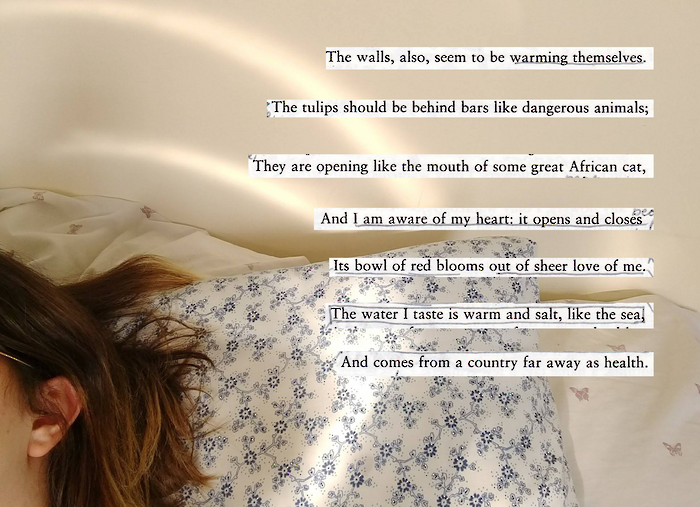Rethinking solitude
“Learn one of life’s best lessons: that to be alone need not always be lonely, when paired with connection to others”

Thoughts, transpired by the tapping of keys, from libraries, bedrooms and coffee shops. These are the moments essays and calculations are completed, in between the manic rush of students attempting not to spill their coffee on the way to lectures. In the world of academia, this paints a glamorous image. You listen to the ideas of intellectuals before settling into a comfortable solitude to consider your own. However, an undiscussed side effect of Cambridge, can be a certain loneliness that creeps upon those stuck in the bubble.
I have always been a natural introvert, taking solace in moments alone. Coming to Cambridge, I still loved company, but I needed a balance between other people’s and my own; I was content in this routine. So, it struck me as particularly strange when, a few weeks into first term, I ended the days feeling alone. I had been more social than ever before, meeting someone new in every moment, spending the days exploring Cambridge with different people and the nights dancing in clubs. It began as new and exciting, yet once I settled into this routine I found myself confined to small talk, and constantly facing guilt of feeling I was not doing enough work, because there is always more work that can be done. I was not as content alone; I was so caught up in routine that I lost connection both to myself and others in the process.
The image of a tortured academic, creative only in solitude, is one I always associated with Cambridge, and greatly over-romanticised. Little wisdom is gained without leaving a desk and leading a fulfilling life. It is not enough simply to spend time reading the words of others; even introverts need a social life.
"Little wisdom is gained without leaving a desk and leading a fulfilling life"
The loneliness I felt was a confusing thing to me, as I had continuous interaction most days – chatting to familiar faces on the way to lectures, supervisions and library sessions. However, the common saying that quality beats quantity applies here; many casual conversations on a regular basis do little to build connection – in fact they can enshrine small talk in daily routine, until it becomes an obligation. Sometimes we should leave the library early, call our friends and spend the evening chatting in someone’s room. I know these evenings always left me more satisfied than a night out. A late trip to the pub or a walk along the river with friendly company is often necessary in order to connect with those around you, who are often just as lonely as you are.
Lifelines – resources such as Nightline – can be fantastic resources, and sometimes loneliness can be chronic and indicative of an underlying condition. In this case, a chat to a therapist or with a support group can be so important. However, articles focused only on promoting these things can alienate those readers that do not fully relate to them. They never appealed to me. I craved a different solution.
But loneliness cannot be solved only through friendship either. Learning to listen attentively to people’s thoughts can build quality connections that help immensely, yet, as with anything, change must first come from the individual.
There must be balance; not all time can be spent alone, yet we must work to normalise a genuine, comfortable solitude. Long walks exploring Cambridge, trips to benches in Jesus Green, and mindfulness are all key to becoming content in those moments that we spend alone. Often, we are so caught up in imminent deadlines that we forget life also has a deadline. Work can be incredibly fulfilling when balanced with thought about your values and interests, so that mental health and personal development are not neglected.
After some time, I have realised there is no end to the workload here, so I've decided I should focus on the topics that truly inspire passion in me. It is vital that we make the most of our degrees, working hard, but not to the point of exhaustion – there is so much else to be gained from university life. Take time alone; whether it be to do a sport, to take long walks or even just to listen to music.
I now make sure to leave my room at least once a day, even when it is tempting to stay cooped up reading books. I will always have deadlines, but I will not always be in Cambridge, so I take time to explore the city and call upon friends in the evenings. Learn one of life’s best lessons: that to be alone need not always be lonely, when paired with connection to others.
If you have been affected by any of the issues discussed in this article, please consider these helpful resources and lifelines:
https://www.studentwellbeing.admin.cam.ac.uk/support-particular-issues/mental-health-support.
Nightline, a night time support service: 01223744444.
 Features / How sweet is the en-suite deal?13 January 2026
Features / How sweet is the en-suite deal?13 January 2026 Comment / Will the town and gown divide ever truly be resolved?12 January 2026
Comment / Will the town and gown divide ever truly be resolved?12 January 2026 News / 20 vet organisations sign letter backing Cam vet course13 January 2026
News / 20 vet organisations sign letter backing Cam vet course13 January 2026 Arts / Fact-checking R.F. Kuang’s Katabasis13 January 2026
Arts / Fact-checking R.F. Kuang’s Katabasis13 January 2026 Music / Inside Radiohead’s circle13 January 2026
Music / Inside Radiohead’s circle13 January 2026









